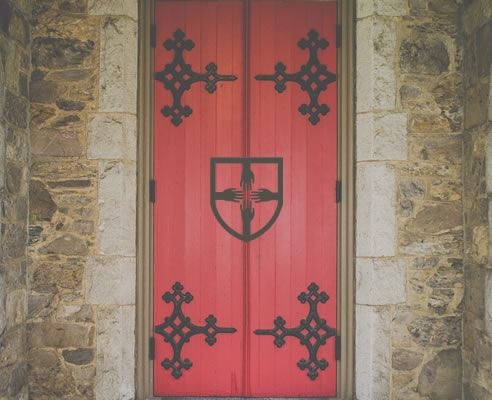
Merry Christmas!
Hopefully, you woke up sober, grateful and fully present on this special morning. Recovery, be it from alcohol, drugs, codependency, pornography, gambling or any other soul-stealing addiction, robs us of our ability to be fully present on days like today, Personally, once I became sober and then began my recovery journey, my experience around holidays changed for the better.
You may be blessed to spend time with family today, gathering with the people you love to open gifts. One of my greatest joys was to watch my children open their gifts on Christmas morning. It was so amazing to see the wonder and awe in their eyes as they awoke to find what Santa had delivered while they slept. Then the joy as they unwrapped gifts. Oh, the faith of children!
I wonder if it is possible to transfer the promises of recovery into our Christmas experience? Most 12 Step Programs have some version of the Promises of Recovery. These twelve promises appeared in the Big Book of Alcoholics Anonymous on pages 83 and 84, describing the result of working the program of AA. Is it possible that the promises, as they are being fulfilled in each of us, are worth unwrapping this Christmas morning?
Tradition and scripture tell us that hundreds of years ago wise men from the East brought gifts to the Christ child to celebrate his arrival. The fulfillment of a promise. Their gifts of gold, frankincense, and myrrh are often referred to symbolically in our faith tradition, each one representing an aspect of the work and personhood of Jesus. There seems to be a natural association with these gifts and the gifts we receive as we recover.
The Gift of Surrender - Gold is most often symbolic of kingship or associated with a ruler. In recovery, we accept that there is a Higher Power and it is not us. The act of surrender initially brings relief from the pressure so many of us in recovery feel to be perfect, to control everything and manage our image. As we deepen our recovery, surrender becomes a daily if not moment by moment gift of partnership - the most valuable weapon in our battle against our shadow self.
Just as gold is expensive and valuable, our ability to daily surrender to our Higher Power becomes an indispensable asset which releases the power to transform our lives. Surrender ensures our path to freedom from our addiction, lays the groundwork for our happiness, puts our past in a proper perspective, and serenity becomes a present reality. What an amazing gift!
The Gift of Gratitude - Frankincense was used as a perfume in Jesus ’ time. As I am around people in recovery I find myself grateful for them and the role they play in my life. Just as the Magi brought a beautiful aromatic perfume to the Christ child, the lives of those of us in recovery become increasingly pleasing and attractive to the people who, perhaps, once could not stand to see us.
As we lose the desire to be self-seeking, we become less inclined to experience self-pity, we begin to love others from a place of mutual respect and dignity, and our attitude on life begins to brighten. We suddenly look around us and realize our fears of being alone have been replaced with a community of people who love and accept us for who we are - character defects and all.
The Gift of Purpose - Finally, myrrh is often seen to symbolize suffering and many believe it to be a foreshadowing of Jesus ’ death. The ultimate promise of recovery is that our old way of life, ruled so often by chaos, lies, and self-inflicted wounds will begin to painfully die off. It will be replaced with a new life rooted in sanity, common sense, gratitude, and an appreciation that our Higher power is doing for us what we cannot do for ourselves. Jesus himself doubled down on this concept so beautifully in the Message translation from Matthew 16: 24-26.
“Then Jesus went to work on his disciples. “Anyone who intends to come with me has to let me lead. You ’re not in the driver ’s seat; I am. Don ’t run from suffering; embrace it. Follow me and I ’ll show you how. Self-help is no help at all. Self-sacrifice is the way, my way, to finding yourself, your true self. What kind of deal is it to get everything you want but lose yourself? What could you ever trade your soul for?”
This Christmas may you be reminded that the greatest gift we could give ourselves and our loved ones is our restored, recovered life. May we look back at our past and realize what it cost us. However, may we also realize what our recovery has provided - we have regained what makes us most alive, our souls.
I would unwrap that gift each morning.
Wouldn ’t you?
Shane M.
Conway, Arkansas
The Message (MSG)
Copyright © 1993, 2002, 2018 by Eugene H. Peterson
 In the early days of the Church, when the front door of the parish was painted red it was said to signify sanctuary – that the ground beyond these doors was holy, and anyone who entered through them was safe from harm.
In the early days of the Church, when the front door of the parish was painted red it was said to signify sanctuary – that the ground beyond these doors was holy, and anyone who entered through them was safe from harm.